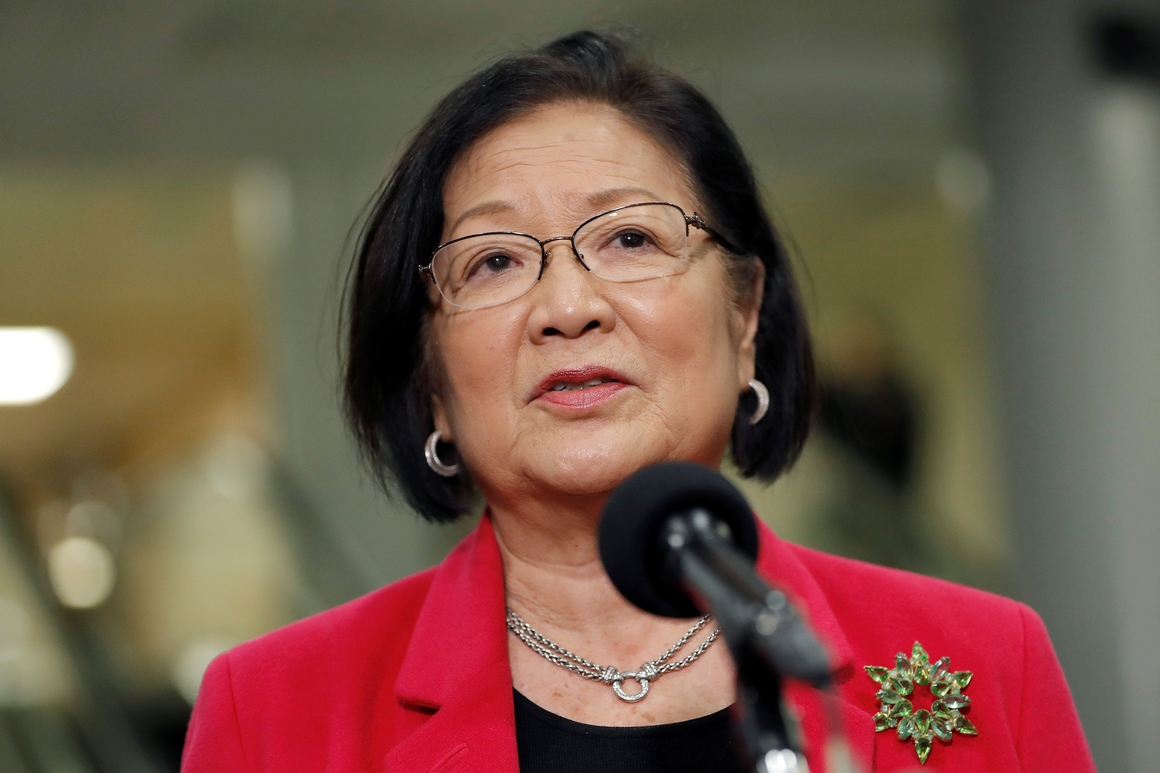
Senate Democrats had other high-profile issues that also led to their Sunday vote to block the stimulus bill. They sought four months of increased unemployment insurance support, but only got three months; they sought hundreds of billions of dollars in emergency funds for hospitals and other health-care providers to combat the coronavirus, yet Republicans budgeted just $75 billion; and they asked for hundreds of billions for a “State Stabilization Fund” to help state and local governments hurt by the looming economic slowdown, while Republicans offered far less.
But the key to the unanimous set of Democratic ‘no’ votes — and what made it easy for Senate Minority Leader Chuck Schumer (D-N.Y.) to line them up — was the “slush fund” accusation.
Democrats noted that the Troubled Asset Relief Program — the formal name of the 2008 financial services industry bailout — created a Financial Stability Oversight Board, a Congressional Oversight Panel, a special inspector general and a mandate for periodic review by the General Accountability Office, Congress’ accounting arm. The legislation offered by Senate Republicans includes none of that.
Republicans argued the term “slush fund” was wildly inappropriate in this situation, while also pointing out that the current economic crisis is not at all comparable to 2008. While the banks and Wall Street firms had overextended themselves at that time, companies today are being hurt by a global pandemic that is far beyond their control.
Republicans also say that they have made major concessions to the Democrats on their demands for this stimulus package. Democrats secured $250 billion in additional unemployment insurance payments, which some top Republicans opposed. The $75 billion in new funding for hospitals was a Democratic win as well, although Schumer and Speaker Nancy Pelosi (D-Calif.) want hundreds of billions more.
Republicans are also pushing for $250 billion in direct cash payments to help struggling workers, as well as hundreds of billions for other programs. All told, it’s by far the most expensive spending bill in American history.
Senate Republicans and the White House defended the structure of the ESF program as drafted, saying they actually built on the lessons of TARP and 2008 in how they created this new initiative.
“The proposal provides desperately needed resources for affected industries and sectors in order to keep people employed and at work,” said Eric Ueland, the White House director of legislative affairs and a former top Senate aide who is closely involved in the negotiations. “This carefully drawn language contains significant pro-taxpayer and pro-consumer protections in a way unprecedented since the invention of these vehicles really 12 years ago.”
Senate Banking Committee Chairman Mike Crapo (R-Idaho) and Sen. Pat Toomey (R-Pa.) pushed for creation of the fund.
“The ‘Phase 3’ package takes precise and targeted measures of relief to particularly distressed industries that are at risk of hemorrhaging jobs and closing down if we don’t,” added Sen. Rob Portman (R-Ohio). “Think of the airlines that right now have seen their passengers reduced by 80 percent, some say 90 percent. Think of the hotel businesses. Think of the other travel and tourism businesses, entertainment business.”
Republicans also claim that a big problem with the TARP program was that as soon as a company disclosed it received a government loan, it got pounded by investors, which in turn hurt its chances of surviving. That in turn led to even more layoffs. So for this reason, Republicans believe a delay is appropriate between when a loan is received and when it becomes public.
“One of the lessons learned from TARP in 2008 was the concern that companies had about being identified publicly as soon as they accepted TARP assistance,” said a GOP official. “It caused an assumption that those companies might be headed for a terminal event.”
But Democrats weren’t hearing any of that, and as they ramped up their opposition to McConnell’s plan, they pounced on the “slush fund” to try to define the bill before GOP leaders and the White House had a chance to.
“It really isn’t putting workers and small businesses first, and you’ve got a $500 billion slush fund,” complained Sen. Jon Tester (D-Mont.). “I think it’s important to just target it for the people and the businesses. You just don’t throw money out like it’s confetti.”
Source: politico.com
See more here: news365.stream






